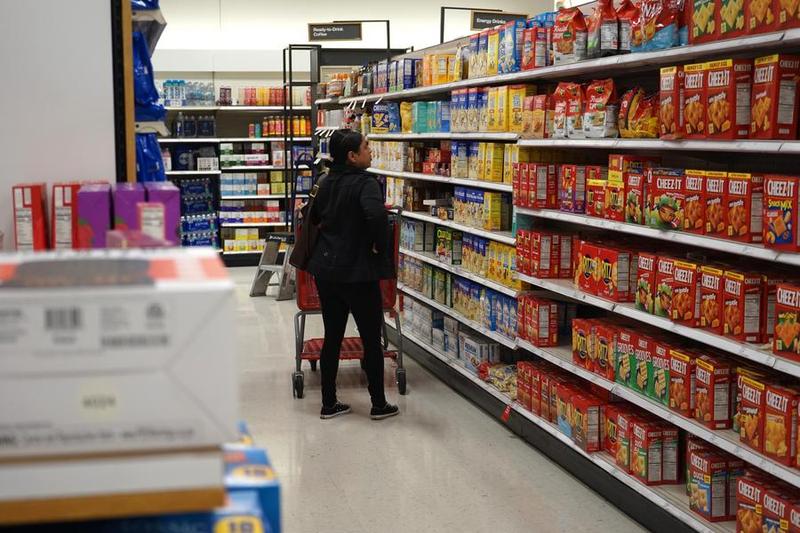
In the mind of the current president of the United States, it seems that all that it takes to revitalize US manufacturing and its economy is to raise tariffs on countries so that they will come for talks on new deals.
Yet, after launching his weaponized tariff attacks on the US' trading partners on Wednesday, what the US leader has reaped are landslide falls in the US markets, a chaotic buying spree sweeping the country, and nationwide protests opposing his policy, along with resolute, prompt retaliatory measures from other countries and warnings from international organizations of an imminent US recession.
The so-called reciprocal tariffs are projected to increase the US inflation rate by 1.5 percentage points, making it more difficult for US economy to avoid a recession and dragging down global growth by at least 1 percentage point this year.
READ MORE: China states its position on opposing US abuse of tariffs
What made the fall of the US stock markets so dramatic was that the White House sent a news release after the bell celebrating the US president's "WEEK 11 WINS" on Friday and praising the president for unleashing "Economic Prosperity", which landed minutes after the routed markets marked the first time the Dow Jones Industrial Average has ever shed over 1,500 points two days in a row.
"It was another highly successful week for the American people as President Donald J. Trump continues his relentless pursuit of strength, prosperity, and peace — and lays the foundation for America to be the global powerhouse for generations to come," the White House said.
US markets closed with steep losses after trade tensions boiled over. The Dow Jones Industrial Average fell over 2,200 points that day, and the two-day loss for the S&P 500 hit 10 percent. And as the brutally battered stock market limped toward the finish line that day, the US president delivered a defiant statement to his Truth Social followers: "ONLY THE WEAK WILL FAIL!"
The rallying cry struck a similar chord to his earlier declaration on Friday morning that his policies will "NEVER CHANGE" — even as his tariff announcement on Wednesday sparked a massive sell-off, which clearly indicates the pessimism is universal and not exclusive to "the weak".
And that mood was further vented in the wide so-called Hands Off! protests on the weekend in the US, which were organized for more than 1,200 locations in all 50 states by more than 150 disparate groups. Although their appeals are much wider than the US administration stopping its weaponization of tariffs, it is the rocketing cost of living in such a short span of time, fueled by the US' tariff policy, that has prompted the demonstrations, which is a vivid reflection of the administration's oversimplified transactional views on and approaches to many complicated challenges.
That the US administration chooses to turn a blind eye to the US economy sailing on a doomed course following its own badly drawn charts has certainly worried not only ordinary citizens but also some core members of its top decision-making team. They are in a better position to know the administration's make-believe prescriptions are part of the US maladies, not a way to remedy them.
Among them is US Treasury Secretary Scott Bessent, who is reportedly looking to leave the administration following the president's "reciprocal tariff" announcement. The former hedge fund manager, who warned the US' tariff policy could escalate global trade tensions, is reportedly increasingly isolated within the administration and may be seeking an exit to salvage his credibility.
Bessent, who had previously downplayed the negative effects of tariffs, suggesting they were merely price adjustments rather than inflationary, might have realized that the administration's wrecking ball will cause a lot more damage than that. His urging that other countries not retaliate is being widely interpreted as evidence proving the US administration is completely out of touch with the reality faced by its tariff victims who have no choice but to fight back, even though they remain open to talks.
Among which, China's resolute countermeasures were the first to be announced. Beijing announced on Friday that it will impose a 34 percent additional tax on all US imports this week, matching the rate that the US administration imposed on Chinese imports.
ALSO READ: Bullying tariffs will scar US too
China's countermeasures also include more export controls on rare earth minerals, suspended imports of sorghum, poultry and bonemeal from six US companies, adding 27 US firms to lists of companies facing trade restrictions, an anti-monopoly investigation into DuPont China Group, and a lawsuit at the World Trade Organization over the US administration's "reciprocal tariffs".
The US leader's post on social media on Friday that China "played it wrong" only serves to expose China's countermeasures have caught the US administration unexpected. If China's previous responses were scalpels, this time it drew a sword. China's new tariffs stop short of a full-blown trade war, but they mark a clear escalation entailing more efforts to untangle the situation, as some US observers pointed out.
Although the lose-lose results will leave no party unscathed, it is the US itself that will primarily bear the brunt of its tariff policy.


